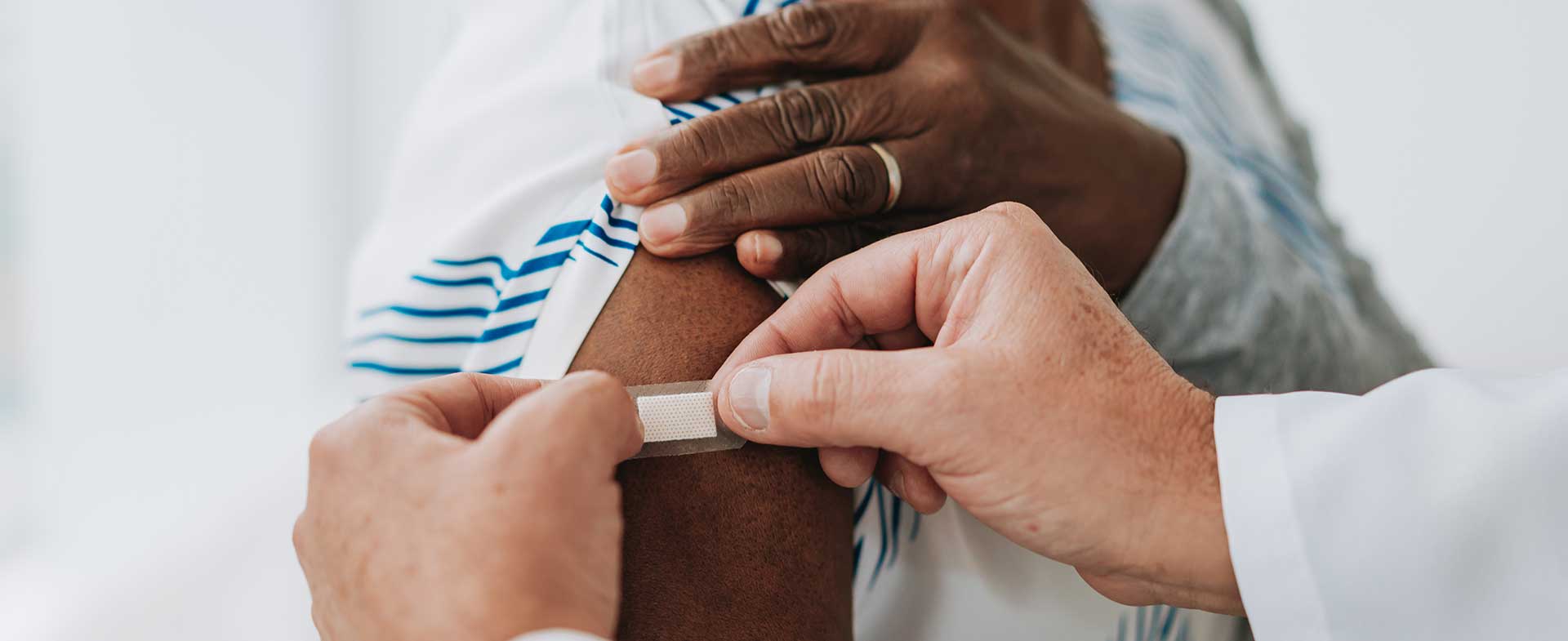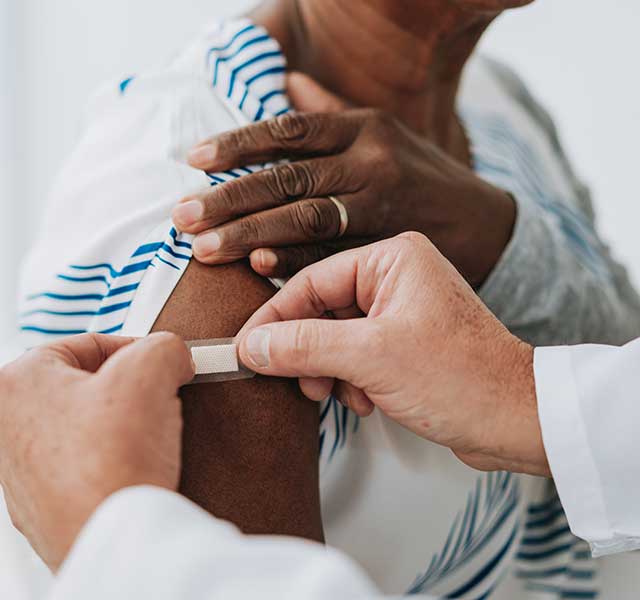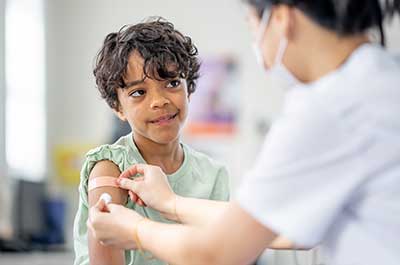Last year, the first two RSV vaccines were approved for pregnant women and adults ages 60+. While RSV (which stands for respiratory syncytial virus) is often a cold in healthy, older children and young adults, it can cause serious illness in infants, young children and older adults.
That said, some people have wondered whether the new RSV vaccines are necessary. But as a recent study found, they are.
“Our study compared the severity of RSV to flu and COVID-19 in adults ages 18+ who were hospitalized, and it captures a time before RSV vaccines were available,” says Ivana Vaughn, Ph.D., MPH, an assistant scientist in epidemiology at Henry Ford Health. “We found that in hospitalized unvaccinated adults, RSV is similar in severity to unvaccinated COVID and flu patients – and greater in severity than in vaccinated COVID and flu patients.”
The study was conducted by the IVY Network and sponsored by the Centers for Disease Control and Prevention (CDC). Henry Ford Health is one of 25 hospitals nationwide that participates in IVY Network, which examines vaccine effectiveness in hospitalized patients.
What Constitutes Severe Illness?
Dr. Vaughn says severity of disease was measured within 28 days of hospital admission in several ways:
- Whether supplemental oxygen therapy was needed
- Whether advanced respiratory support was needed
- Whether acute organ failure occurred
- Whether admission to the ICU was needed
- The number of days alive and out of the hospital
- Whether mortality or invasive mechanical ventilation occurred
“The most significant differences were seen in patients hospitalized for RSV who had advanced respiratory support, acute organ failure or ICU admissions compared to patients hospitalized for COVID-19 or influenza,” says Dr. Vaughn.
Among hospitalized patients with RSV, 12% experienced mechanical ventilation or death compared to 14% in unvaccinated COVID patients and 9.2% in vaccinated COVID patients.
Among hospitalized patients with RSV, 12% experienced ventilation or death compared to 10.3% of unvaccinated flu patients and 5% of vaccinated flu patients.
“Now that there are approved vaccines for RSV, this data highlights the importance of being vaccinated,” says Dr. Vaughn.
Getting Vaccinated For RSV, Flu And COVID
Each fall brings a trifecta of viral infections – and it’s important to keep up with your vaccinations to prevent yourself and others from getting ill. The more people who are vaccinated, the less likely it is that infection will spread.
Here’s how to know who should get vaccinated for which viruses and when:

Get Your Flu Shot
- Flu: The CDC recommends everyone ages six months and older (with rare exceptions) receive a flu shot. The best time to get a flu shot is in September or October, as it will provide the most protection throughout the duration of flu season.
- COVID: Just as with the flu, each fall brings a new strain of COVID - and the vaccine is reformulated to offer maximum protection. The CDC recommends everyone ages six months and older receive an updated 2024-2025 shot this fall/winter when it becomes available, whether or not they have been previously vaccinated with a COVID-19 vaccine. It is okay to receive a flu and COVID vaccine at the same time.
- RSV: The CDC recommends that adults ages 75+ receive a single lifetime dose of an RSV vaccine. This means that if you were vaccinated last year for RSV, you do not need another dose. The CDC also recommends that adults ages 60 – 74 who are at increased risk of severe RSV disease receive a single lifetime dose of an RSV vaccine. During pregnancy, the RSV vaccine should be administered from weeks 32 – 36, from September through January.
For more information, talk to your doctor about which vaccine(s) are recommended for you and your family.
Reviewed by Ivana Vaughn, Ph.D., MPH, an assistant scientist at Henry Ford Health.



